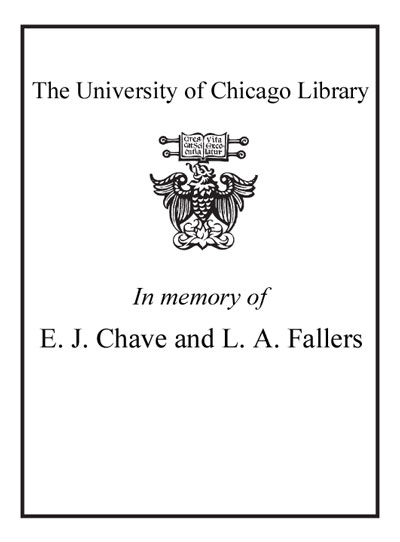The Wittenberg Concord : creating space for dialogue /
Saved in:
| Author / Creator: | Jensen, Gordon A., author. |
|---|---|
| Imprint: | Minneapolis, MN : Fortress Press, [2018] |
| Description: | xxiv, 235 pages : map ; 23 cm. |
| Language: | English |
| Series: | Lutheran quarterly books Lutheran quarterly books. |
| Subject: | |
| Format: | Print Book |
| URL for this record: | http://pi.lib.uchicago.edu/1001/cat/bib/11709307 |
MARC
| LEADER | 00000cam a2200000Mi 4500 | ||
|---|---|---|---|
| 001 | 11709307 | ||
| 005 | 20180921142147.0 | ||
| 008 | 180430s2018 nmub b 001 0 eng d | ||
| 003 | ICU | ||
| 035 | |a (OCoLC)1032580720 | ||
| 040 | |a YDX |b eng |e rda |c YDX |d KAT |d LNT |d OCLCF |d NhCcYBP | ||
| 019 | |a 1032674391 |a 1032712480 | ||
| 020 | |a 9781506431567 |q paperback | ||
| 020 | |a 1506431569 |q paperback | ||
| 035 | |a (OCoLC)1032580720 |z (OCoLC)1032674391 |z (OCoLC)1032712480 | ||
| 050 | 4 | |a BR307 |b .J46 2018 | |
| 082 | 0 | 4 | |a 274.06 |2 23 |
| 100 | 1 | |a Jensen, Gordon A., |e author. | |
| 245 | 1 | 4 | |a The Wittenberg Concord : |b creating space for dialogue / |c Gordon A. Jensen ; foreword by Timothy J. Wengert. |
| 264 | 1 | |a Minneapolis, MN : |b Fortress Press, |c [2018] | |
| 300 | |a xxiv, 235 pages : |b map ; |c 23 cm. | ||
| 336 | |a text |b txt |2 rdacontent |0 http://id.loc.gov/vocabulary/contentTypes/txt | ||
| 337 | |a unmediated |b n |2 rdamedia |0 http://id.loc.gov/vocabulary/mediaTypes/n | ||
| 338 | |a volume |b nc |2 rdacarrier |0 http://id.loc.gov/vocabulary/carriers/nc | ||
| 490 | 1 | |a Lutheran quarterly books | |
| 504 | |a Includes bibliographical references (pages 209-223) and index. | ||
| 505 | 0 | |a The quest for an evangelical political alliance -- Stifled dialogues (1520-29) -- Recreating space for theological dialogue (1530-34) -- Negotiating an agreement (1534-36) -- Agreeing on the Lord's Supper -- Agreeing on baptism and absolution -- Failed negotiations : controlling church property -- Implementing the Concord : after the negotiations -- Making room for dialogue today -- Appendix 1. The Constance Articles : articles proposed by Martin Bucer to the Conference of Swiss and South German Theologians, held in Constance, December 17, 1534 -- Appendix 2. Luther's thoughts : given by Luther to Melanchthon in preparation for the Kassel Dialogue, December 17, 1534 -- Appendix 3. The Wittenberg Concord, 1536 -- Appendix 4. Memorandum on the jurisdiction of civil authorities over church property (for the councillors of the city of Augsburg), May 23, 1536 -- Appendix 5. Personnel involved with the Wittenberg Concord negotiations -- Appendix 6. Map of cities and territories accepting the Wittenberg Concord. | |
| 520 | |a Rethinking the Wittenberg Concord for Today One of the mostly forgotten gems of the sixteenth century Reformations is the Wittenberg Concord. Signed in 1536 by representatives of evangelical southern German imperial cities and territories and the Lutherans, the dialogue that led to the concord provided space for the participants to have a meaningful dialogue that led to the recognition of each other's understanding of the sacraments as orthodox. This was remarkable, given the very public failures at Marburg in 1529 and Augsburg in 1530. The lack of agreement threatened the unity of the evangelical estates and made them, along with the Reformation teachings, vulnerable to attack by the Holy Roman Empire and the Roman Catholic Church. The dialogue participants created enough space in their own understandings of the sacraments of baptism, absolution, and the Lord's Supper to allow the agreement to occur--and function reasonably well, at least until the beginning of the Thirty Years War in 1618. The final two chapters explore how this concord has impacted the church since its acceptance, and how the lessons learned from this dialogue can assist churches today in providing healthy spaces for ecumenical dialogue to discuss controversial issues. | ||
| 650 | 0 | |a Reformed Church |x Relations |x Lutheran Church. | |
| 650 | 0 | |a Lutheran Church |x Relations |x Reformed Church. | |
| 650 | 7 | |a Interfaith relations. |2 fast |0 http://id.worldcat.org/fast/fst01353343 | |
| 650 | 7 | |a Lutheran Church. |2 fast |0 http://id.worldcat.org/fast/fst01003996 | |
| 650 | 7 | |a Reformed Church. |2 fast |0 http://id.worldcat.org/fast/fst01092606 | |
| 830 | 0 | |a Lutheran quarterly books. |0 http://id.loc.gov/authorities/names/n2003097295 | |
| 903 | |a HeVa | ||
| 929 | |a cat | ||
| 999 | |n 514-0 |c JRL |r 170 | ||
| 999 | f | f | |i 824fbce5-bfdd-5fc2-be61-fd345c4c0b6e |s 9f8a4848-0659-569e-847d-d707e65b730a |
| 928 | |t Library of Congress classification |a BR307 .J46 2018 |l JRL |c JRL-Gen |i 11153227 | ||
| 927 | |t Library of Congress classification |a BR307 .J46 2018 |l JRL |c JRL-Gen |e CHAV |b 115718384 |i 10025967 | ||

